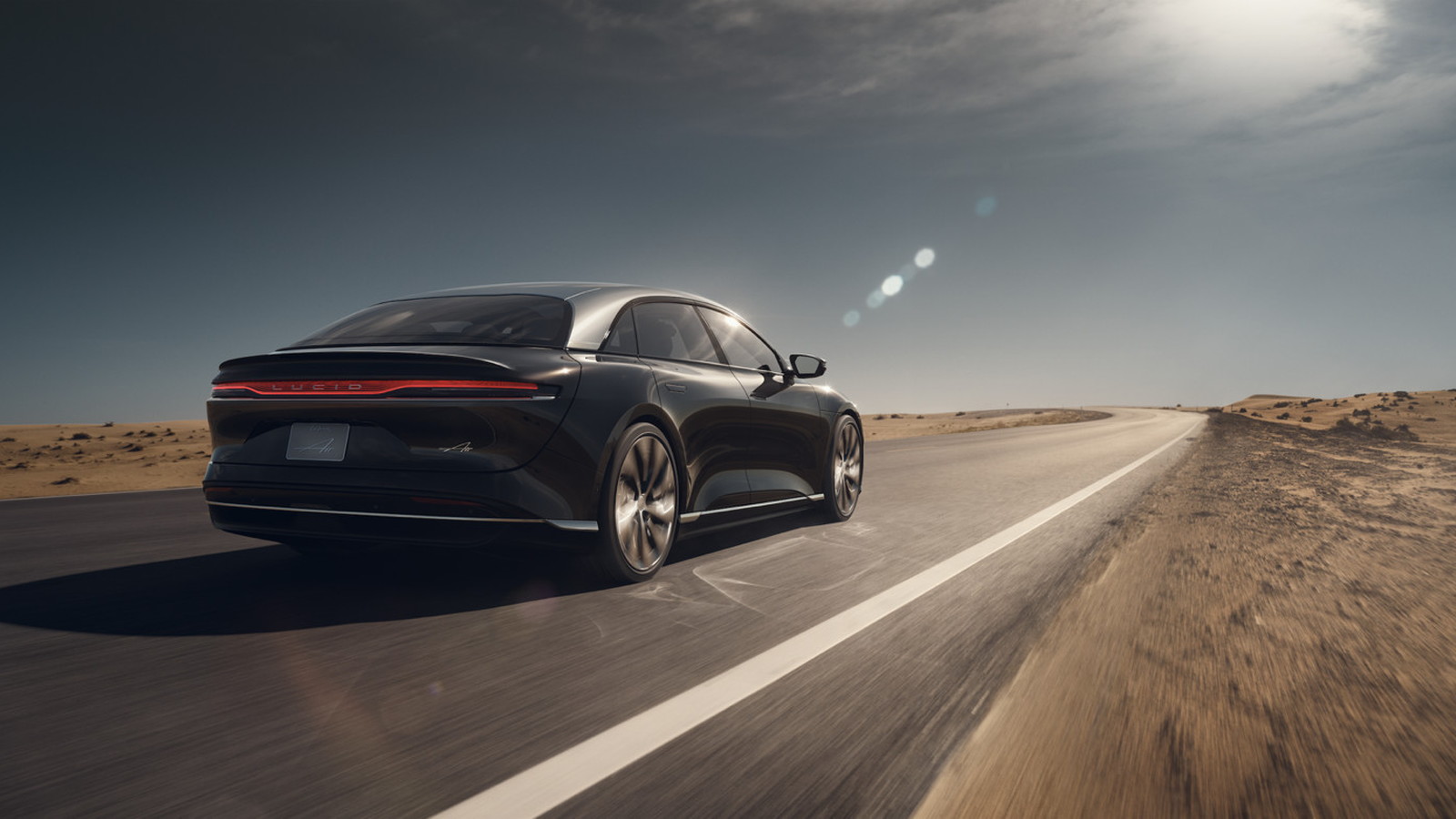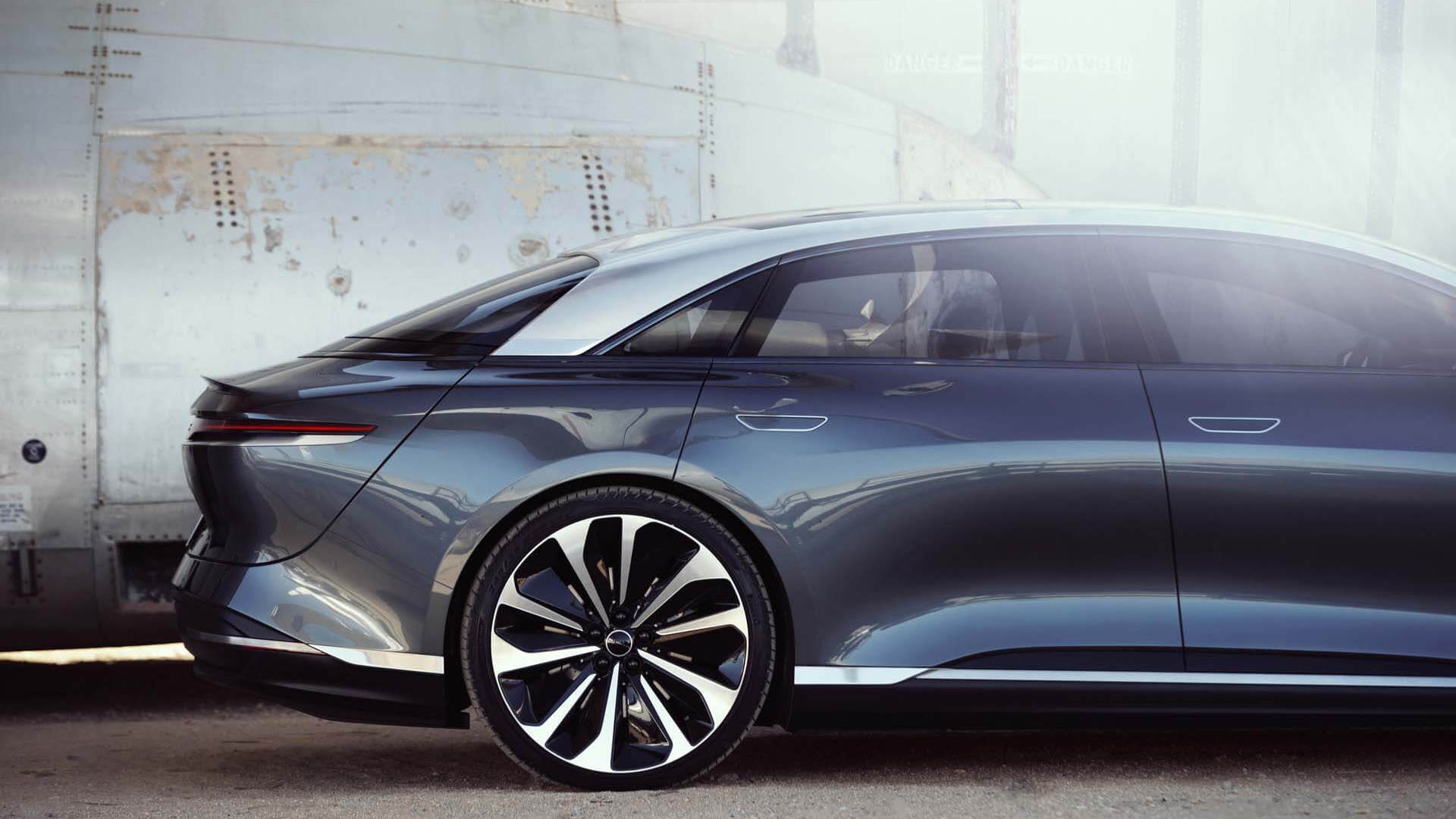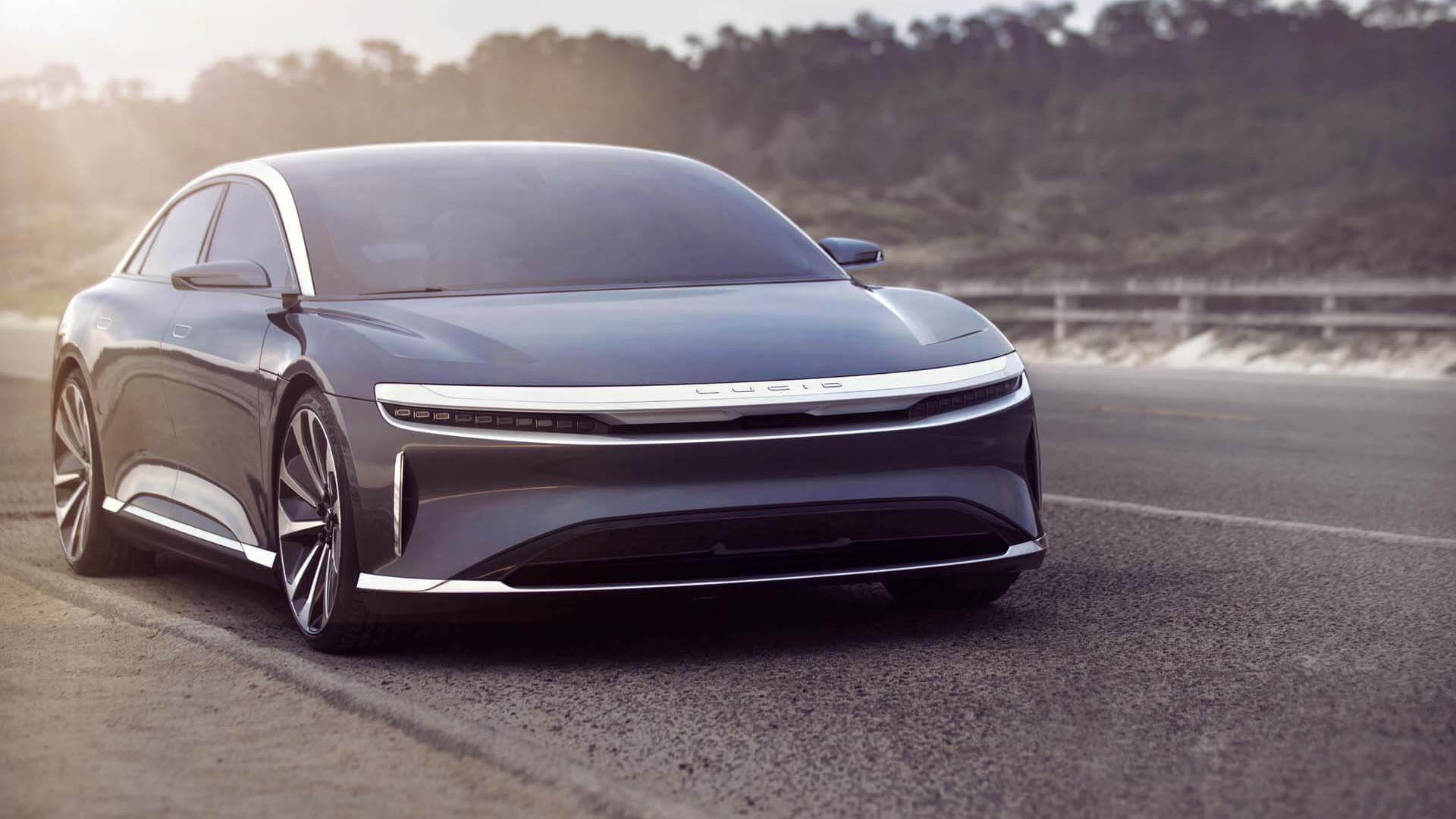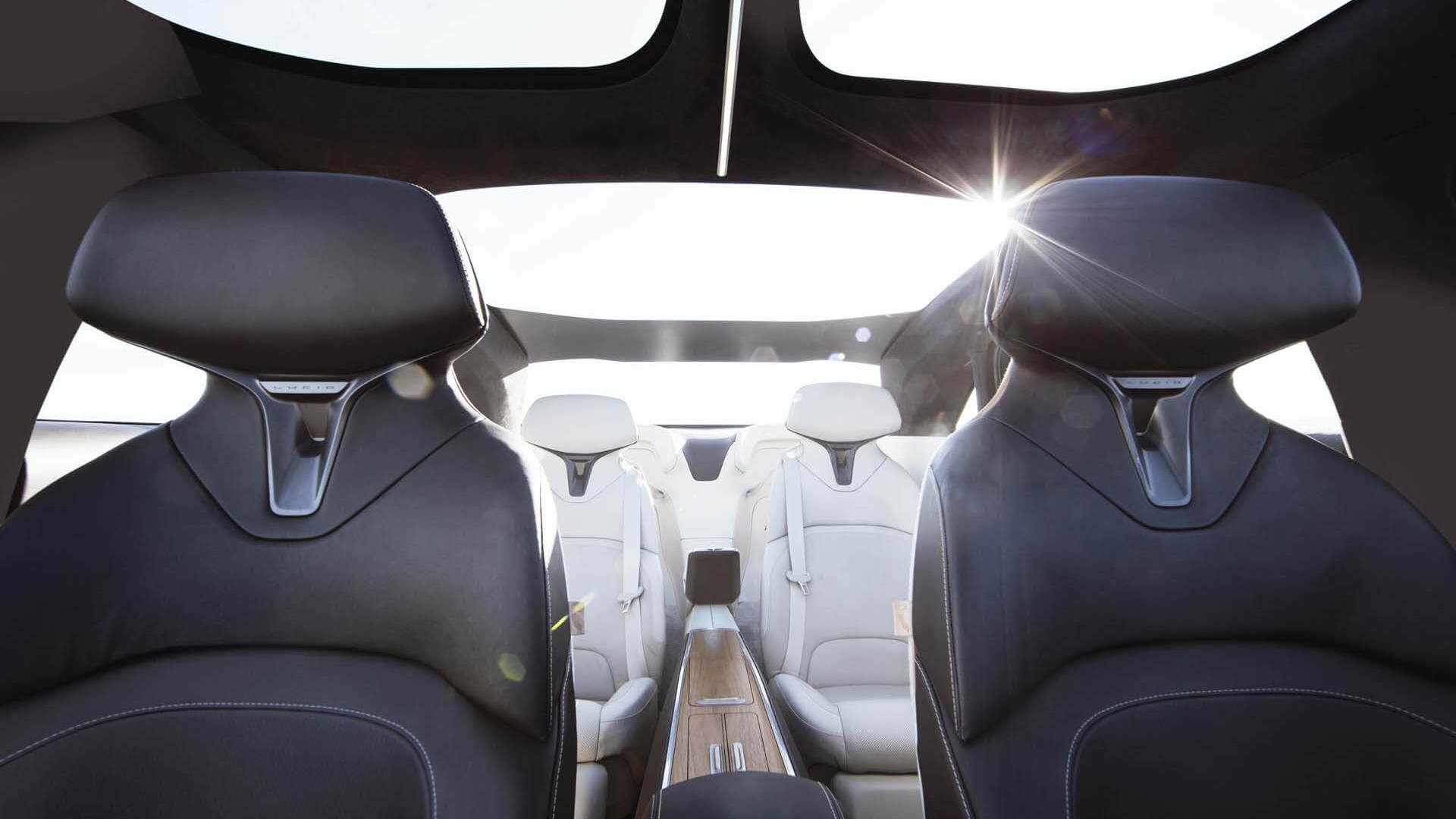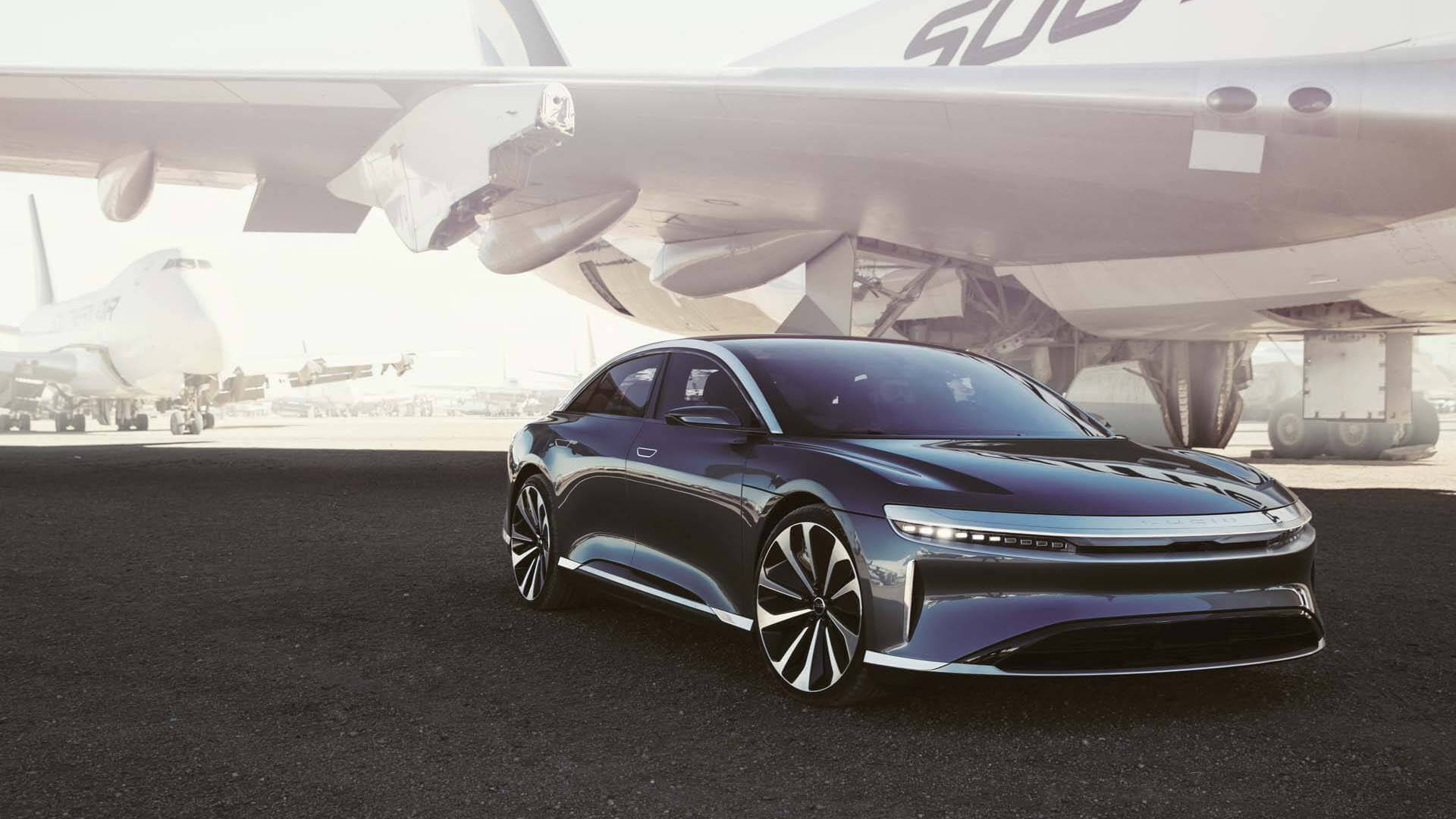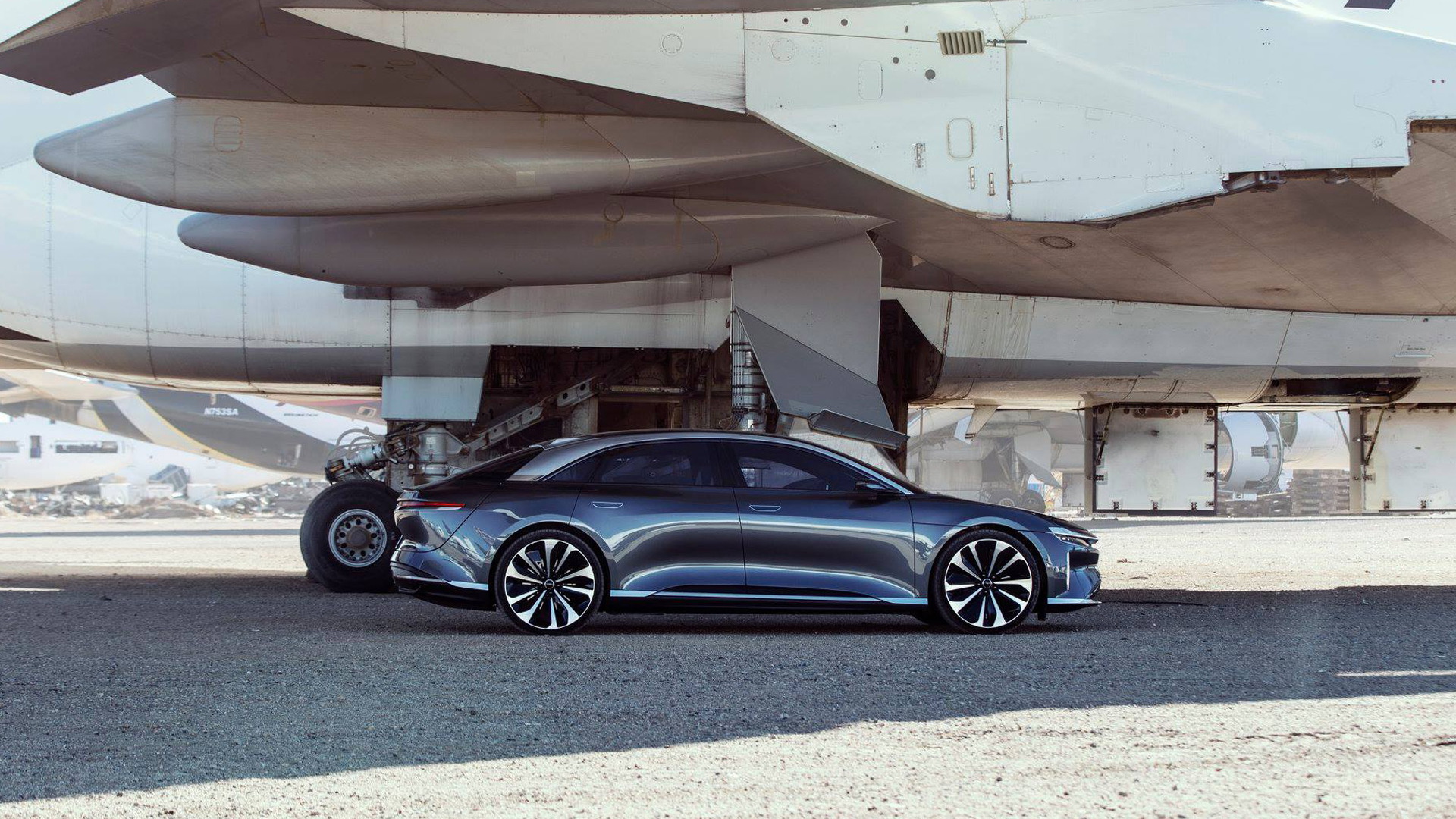When the Lucid Air reaches the first customers next spring, it’s shaping up to leapfrog past the Tesla Model S in range.
The Model S only recently broke the 400-mile barrier, with an EPA rating of 402 miles. But the upcoming Lucid Air will likely earn a number exceeding 500 miles.
For now, that number—not at all confirmed by the EPA, and with a few asterisks and footnotes—stands at an estimated 517 miles, as measured by FEV North America, in Auburn Hills, Michigan, under a test commissioned by Lucid.
Production schedules aside, Lucid is calling it the world’s longest range electric vehicle.
The result matches what Lucid had predicted, using computer modeling, and Lucid notes that it developed the Air’s motors, transmission, and inverter in-house, mating them with a “900+ volt architecture” that the company says is the key to the system’s unmatched efficiency and compactness.
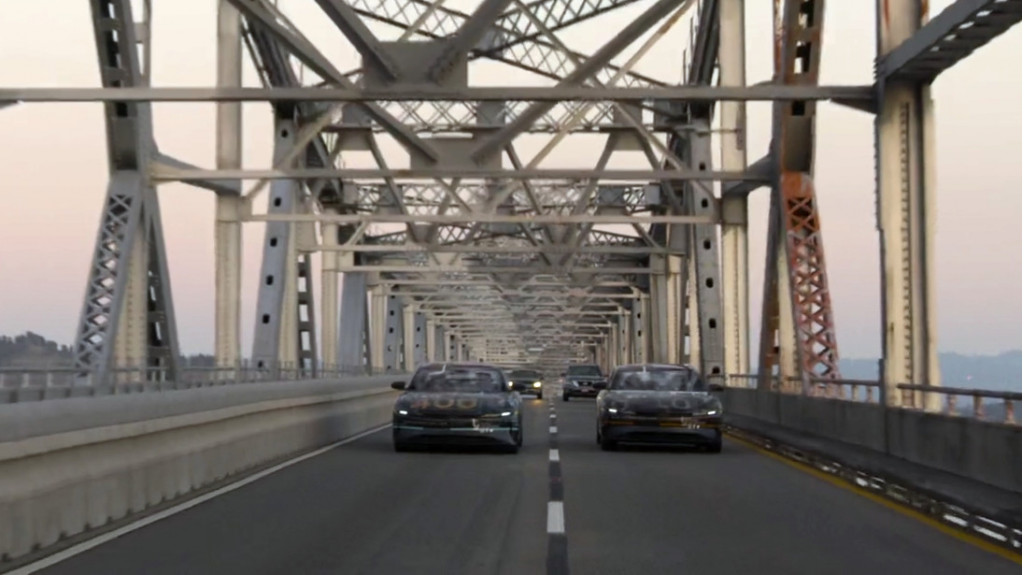
Lucid Air range test video - Richmond San Rafael Bridge
Lucid also conducted thousands of miles of real-world range testing—and teased, with a California road-trip video earlier this spring, that the Air could comfortably handle well over 400 miles at real-world U.S. highway cruising speeds.
In an interview with Green Car Reports, Lucid CEO Peter Rawlinson was straightforward about the company’s claims, and clarified that these are beta prototypes that don’t have completely production-representative interiors and air-conditioning systems.
Lucid says that for the Air’s battery packs it’s drawn from ten years and more than 20 million miles of real-world testing—including the company’s exclusive supply of battery packs for all Formula E race cars, via its Atieva division. The Air will use 2170-format cylindrical cells—the same size as those used for the Tesla Model 3 and Model Y—but supplied by LG Chem, in an approximately 110-kwh pack.
Efficiency is the enabler
Rawlinson understands that efficiency is what some might call the “secret sauce” to making electric vehicles work. He’s made it one of the key differentiators of Lucid versus other EV makers—leading to an advantage in range, charging, and more.
The CEO, also serving as CTO, compared the work that Lucid has done with efficiency to Tour de France, in which no single thing sums it all up. Credit goes to the Air’s record-low (for a luxury car) 0.21 coefficient of drag and reduced frontal area, its unified, oil-cooled motor-transmission unit, and the motor itself, among many details.
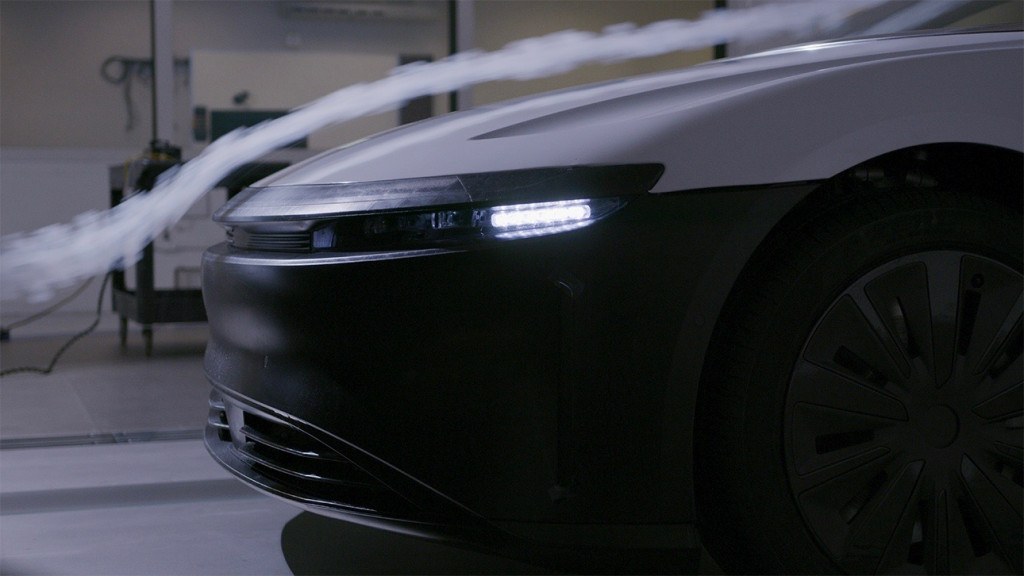
Lucid Air wind tunnel testing
The motor, which can spin up to 19,500 rpm, incorporates “a breakthrough on the electromagnetism side,” according to Rawlinson, and has about a third the cogging torque—that’s the interaction that the motor’s magnets provide when no current is applied—versus any competitor’s motors. Further, it’s the only company that’s using cooling for the core of its motors: ”which no one else has got—not even the leader in the industry—and we’ve patented it.”
“So we’ve got breakthrough thermal control compared with everyone else, and it’s a Lucid tech,” said Rawlinson. “No one can copy it.”
He also credited the company’s “over 900-volt architecture,” which decreases resistance—and thus additional energy losses for cooling—throughout the system, and the company’s entirely in-house-developed silicon-carbide MOSFET inverter, which he said is the only production inverter delivering more than 90 kilowatts per liter.
Versus Tesla products, the Air will have a quarter of the thermal losses, claims Rawlinson—a figure that drives Lucid’s efficiency of the motor, inverter, transmission, and differential, together, to an industry-best level, at more than 90 percent.
First place for range, but not part of the range race
“The point here is that efficiency is king...the world doesn’t need a 500-mile range car,” said Rawlinson. “A 350-mile range car is lighter and uses less cells, so it’s more affordable; that’s what we want to do.”
That said, Lucid knows it needs to go the distance first.
“With Lucid Air, I want to change range anxiety to range confidence, and do that with the perfect antidote, which is carrying a long range on the car,” he said. “I think when there’s a more mature fast-charging infrastructure and people get more confident with electric cars the need for such a big range to carry on the car will reduce.”
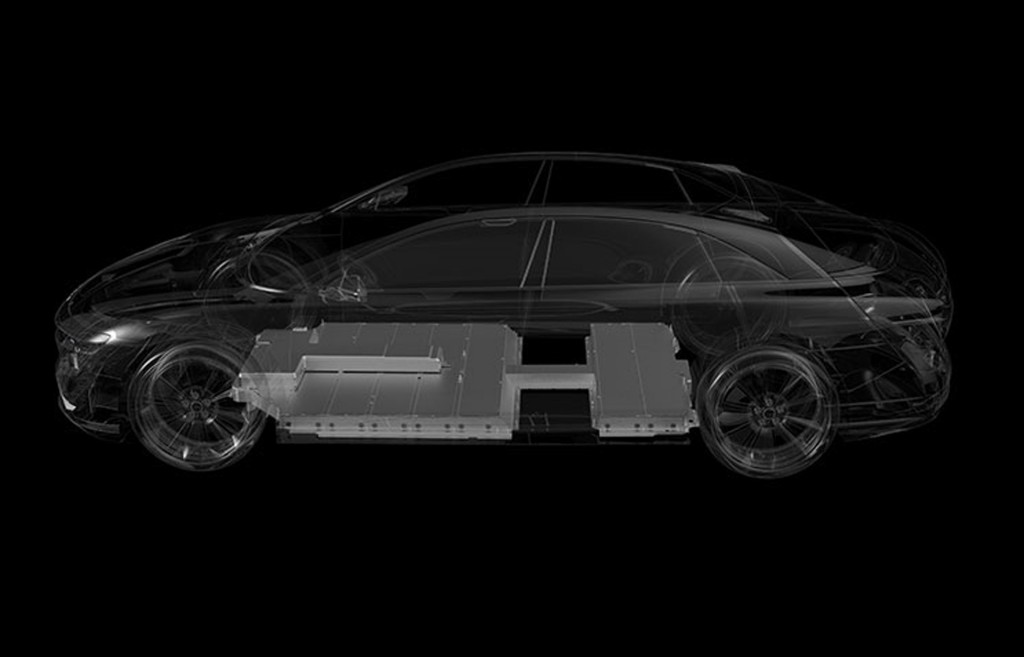
Lucid Air
The Air will launch with what it’s calling an extended-range pack, but it’s going to bring in what it terms a standard long-range pack that will offer more rear foot space and a better value proposition.
Rawlinson said that on 350-kw DC fast chargers, such as those being installed across the country, Lucid is approaching getting an actual 300 kw going into the battery. With the Air’s efficiency around 4 miles per kwh, that’s 1,200 miles an hour—or as much as 20 miles in per charging minute.
Look for plenty more about charging and specifications, to be released around the time of the Air’s production-version debut September 9.
